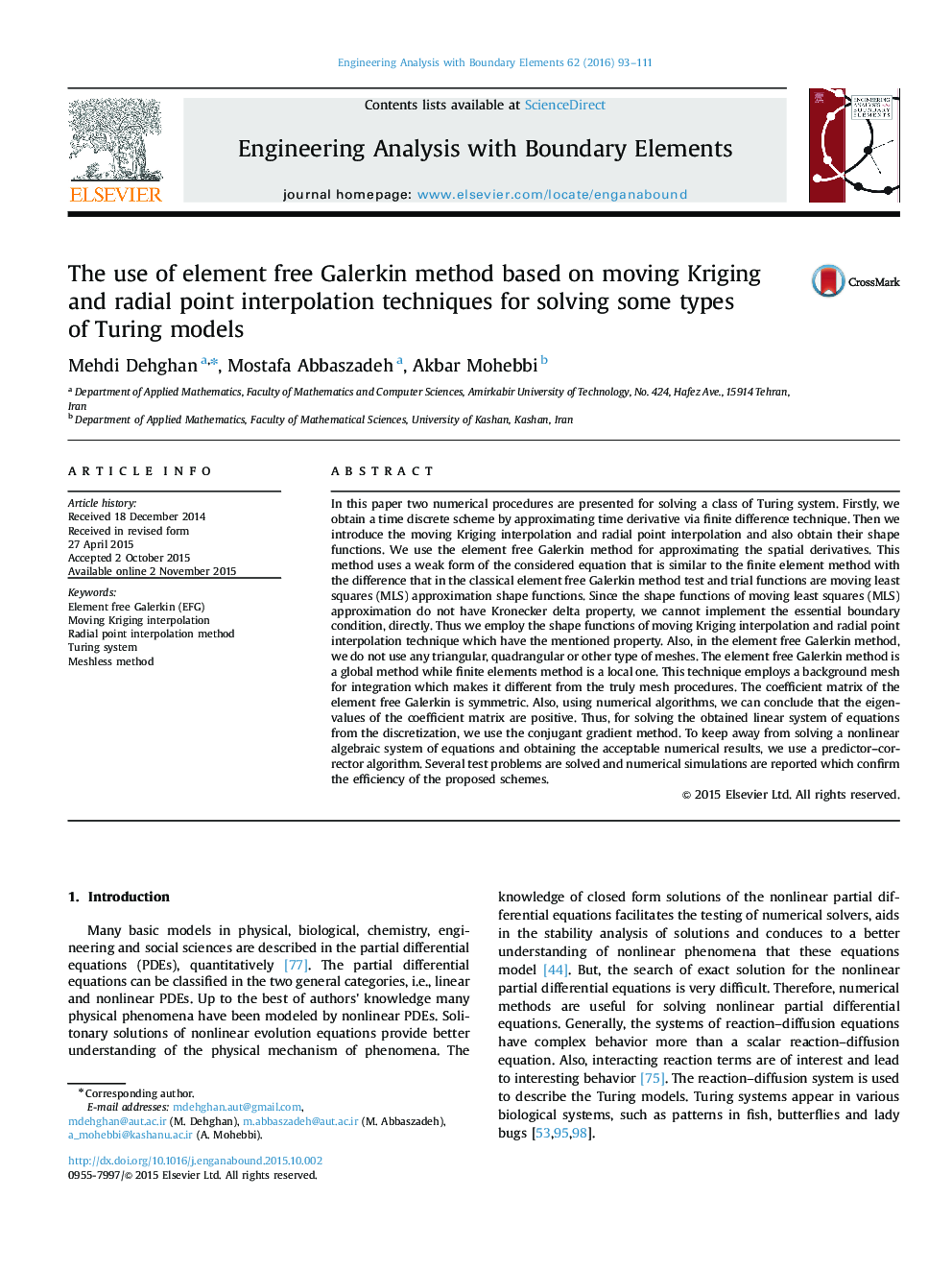| Article ID | Journal | Published Year | Pages | File Type |
|---|---|---|---|---|
| 512253 | Engineering Analysis with Boundary Elements | 2016 | 19 Pages |
In this paper two numerical procedures are presented for solving a class of Turing system. Firstly, we obtain a time discrete scheme by approximating time derivative via finite difference technique. Then we introduce the moving Kriging interpolation and radial point interpolation and also obtain their shape functions. We use the element free Galerkin method for approximating the spatial derivatives. This method uses a weak form of the considered equation that is similar to the finite element method with the difference that in the classical element free Galerkin method test and trial functions are moving least squares (MLS) approximation shape functions. Since the shape functions of moving least squares (MLS) approximation do not have Kronecker delta property, we cannot implement the essential boundary condition, directly. Thus we employ the shape functions of moving Kriging interpolation and radial point interpolation technique which have the mentioned property. Also, in the element free Galerkin method, we do not use any triangular, quadrangular or other type of meshes. The element free Galerkin method is a global method while finite elements method is a local one. This technique employs a background mesh for integration which makes it different from the truly mesh procedures. The coefficient matrix of the element free Galerkin is symmetric. Also, using numerical algorithms, we can conclude that the eigenvalues of the coefficient matrix are positive. Thus, for solving the obtained linear system of equations from the discretization, we use the conjugant gradient method. To keep away from solving a nonlinear algebraic system of equations and obtaining the acceptable numerical results, we use a predictor–corrector algorithm. Several test problems are solved and numerical simulations are reported which confirm the efficiency of the proposed schemes.
